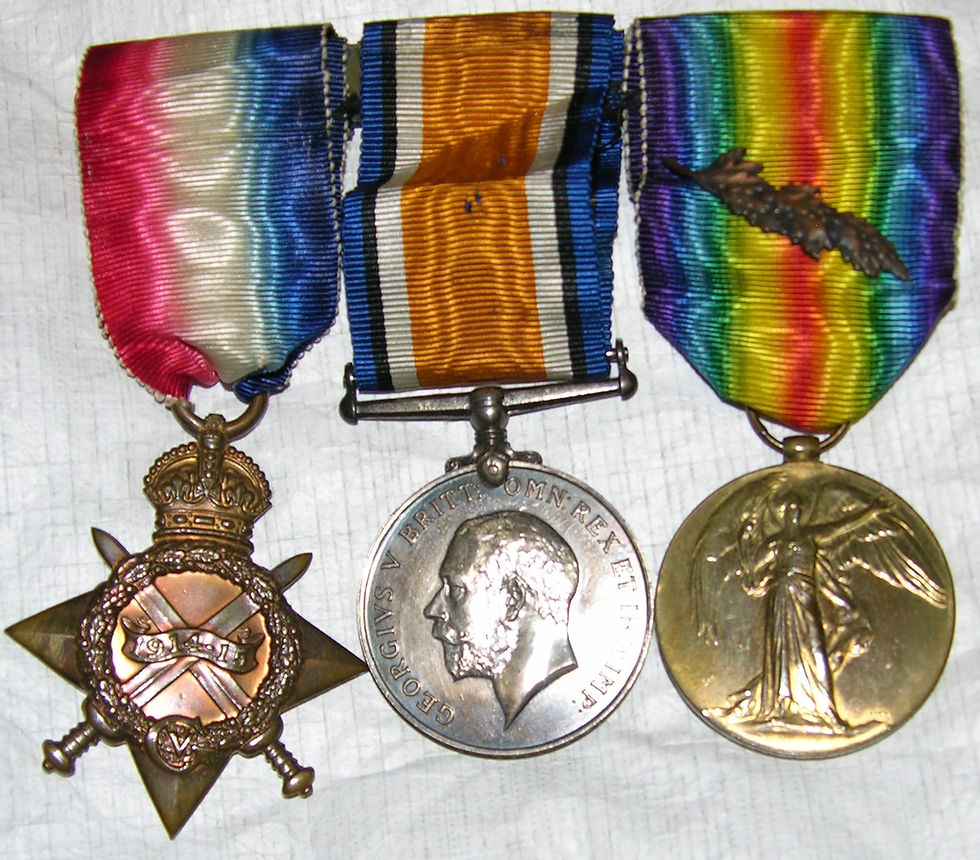Fr John Luck SJ's personal papers
- Mary Allen

- Mar 16, 2015
- 3 min read

John Luck was born 9 January 1867 in Aldershot where his father Richard was a boot maker. He entered the Society in September 1888.
Throughout his life Luck kept up regular correspondence with his parents and five sisters: Lizzie, Lucy, Maggie, Emma and May, and latterly his niece, Mildred. Through his letters, which are unfailingly upbeat and streaked with humour, we catch a glimpse of a man who is always willing to provide advice to his sisters and throw himself whole-heartedly into any task.
A letter written to his mother the day after arrival at Manresa House in 1888 (ref SJ/3/1/1) is included here.
His large build made him well qualified to take on the job of Master of Outdoor Works as a novice, and he continued in this role unofficially at St Mary's Hall, Stonyhurst. He had a keen interest in art and archaeology and at Stonyhurst excavated two mounds in the Winkley Hall estate of Mr William Simpson, believing them to be sepulchral barrows. He describes his excavations in letters to his family. He also had two articles published in the Stonyhurst Magazine for 1894-95 on the matter and wrote a paper for the Lancashire and Cheshire Antiquarian Society. He made his most important contribution to Christian Archaeology while attached to the staff of St Mary’s-on-the-Quay, Bristol. In Bristol Cathedral and many of the old churches in and around the city are shrines of which the original purpose had been forgotten. Luck identified them as being either Altars of Repose or Easter Sepulchres and published his findings in the Tablet, 7 April 1934. In letters to his sisters he often discussed artworks and encouraged them in their own artistic endeavours. At his last assignment at Farm Street he undertook the task of cleaning and polishing the pictures on the walls in the refectory.
Luck was ordained 31 July 1901 at St Beuno's College and completed his Tertianship at Tronchiennes, Belgium. His final vows were taken 2 February 1903. During his life as a priest he was attached to the mission staff of several churches, usually as a curate and mostly in Lancashire. In 1911, Luck left Stonyhurst to open a House of Retreat for men in Lewisham, Diocese of Southwark, but the project was abandoned. In August of that year, however, Thornbury (later Campion) House, Isleworth, in the Archdiocese of Westminster, was opened for the same purpose with Luck as Superior. He remained there until 1915 when he was gazetted as a Chaplain to the Forces, in which capacity he served until 1919.
Luck embarked for France in September 1915 as part of the Royal Army Medical Corps with the 79th Brigade. In November 1915, the Division moved to Salonika via Marseilles. In his letters, Luck describes his work as a chaplain which included saying Mass, censoring the troops' letters and visiting patients. He provides a fascinating insight into the lives of the troops stationed at Salonika, and gives in depth descriptions of the camps and his accommodation, and how he turned his dug-outs into spaces appropriate for saying Mass. In a letter to his sister dated 9 March 1916, Luck says he is having “the time of his life” in Greece (ref. SJ/3/1/199).

In a letter to Lucy, 9 December 1916 (ref SJ/3/1/215), while camped at Doiran Lake, he writes of one particularly hair-raising experience:
Being Saturday I broke off to go to another Regt. to try to arrange Mass for them tomorrow. When I arrived at a part of the country in sight of the enemy I found them shelling a stretcher party ... I halted behind a bush but the beasts had seen me and turned their gun on to me, dropping one shell only 20 yards off. I slipped back from the bush and got safe home.

Luck was awarded the set of three campaign medals for his service as a military chaplain.
Luck spent the last nine years of his life at Farm Street, London and to within his last three weeks he said 11 o' clock Mass on weekdays and generally had about six converts under his instruction, and as Spiritual Father he was Confessor to most of the community. He died on Christmas Day 1950 in the Hospital of Our Lady of Consolation, Lambeth, after three weeks' illness. His requiem took place at Farm Street.
His personal papers have now been catalogued and the catalogue is searchable online at Catholic Heritage.
For more information or if you would like to make an appointment to view the originals please contact the Archivist.












Comments